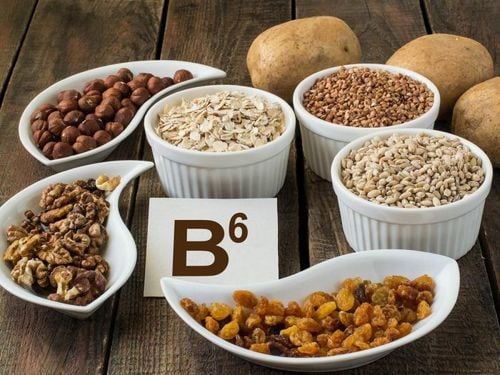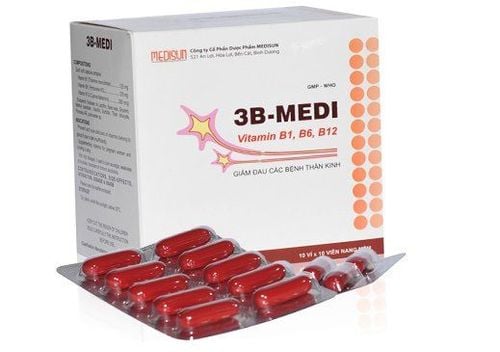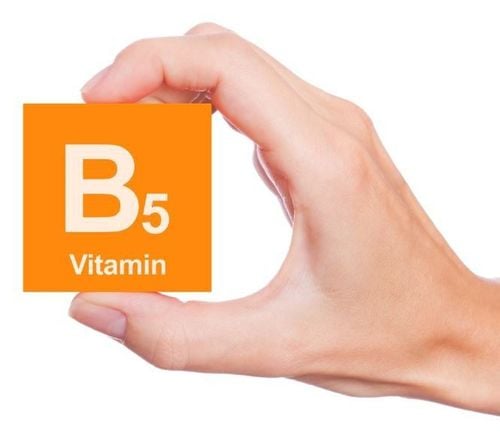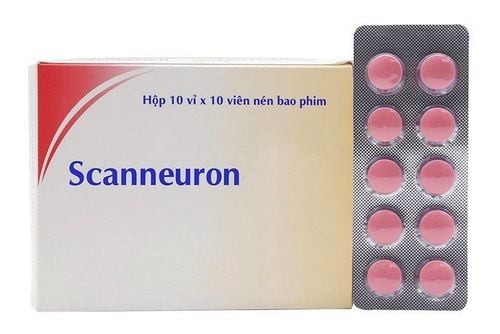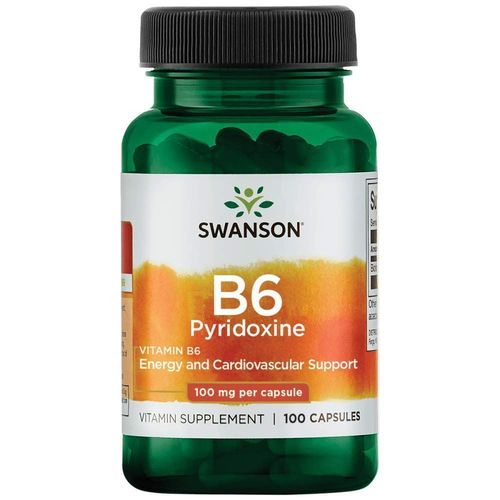This is an automatically translated article.
The article is professionally consulted by Master, Doctor Nguyen Thi Ngoc - General Internal Medicine - Endocrinology - Department of Examination & Internal Medicine - Vinmec Central Park International General Hospital. Doctor has more than 10 years of studying, researching and working in the field of endocrinology.Vitamin B6 (pyridoxine) is important for brain development and a healthy nervous and immune system. Food sources of vitamin B-6 include poultry, fish, potatoes, green beans, and bananas. Vitamin B-6 can also be taken in supplement form such as an oral capsule, tablet, or liquid.
1. What is Vitamin B6 (pyridoxine)?
Vitamin B6, also known as pyridoxine, is one of the vitamins in the vitamin B complex (Vitamin B-complex) family. All B vitamins, including vitamin B6, play an essential role in a variety of physical and psychological functions. They help maintain nerve function, liver function, metabolism, increase energy as well as good for your skin, hair, nails. Vitamin B6 is composed of several derivatives, including pyridoxal, pyridoxal 5-phosphate, and pyridoxamine. These compounds are all involved in many biological functions of the nervous, circulatory, and physical. Therefore, when you lack vitamin B6 you will feel fatigue, irritability, anxiety, depression.2. What does Vitamin B6 do?
People with kidney or small intestine disease that limit the absorption of nutrients from food (malabsorption syndrome) are more likely to have a vitamin B6 deficiency. Certain genetic diseases and certain epilepsy medications can also lead to vitamin B6 deficiency. This can cause not enough healthy red blood cells to carry enough oxygen to your body's tissues (anemia), confusion, depression, and a weakened immune system.Vitamin B6 deficiency often goes hand in hand with other B vitamin deficiencies, such as folate (vitamin B9) and vitamin B12.
The recommended daily amount of vitamin B6 for adults is 1.3 milligrams.
Supplementing with vitamin B6 helps you treat some of the following conditions:
Heart disease and stroke. Vitamin B6 has been shown to work together with folate (vitamin B9) and vitamin B12 to control high blood homocysteine levels. Elevated homocysteine levels can increase your risk of diseases of the heart and blood vessels (cardiovascular disease). However, research has shown that taking this supplement blend reduces the risk or severity of cardiovascular disease and stroke. Morning sickness . Vitamin B6 may reduce the severity of morning sickness during pregnancy. If you have persistent symptoms of morning sickness, your doctor may prescribe a vitamin B-6 supplement. Premenstrual syndrome (PMS). There is some evidence that vitamin B-6 may reduce symptoms of PMS Sideroblastic anemia. Vitamin B6 is effective in treating this type of inherited anemia. Pyridoxine has been used to prevent or treat a certain neurological disorder (peripheral neuropathy) caused by certain drugs (such as isoniazid) In addition, vitamin B6 has also been used to treat treatment of certain genetic disorders (eg, xanthurenic aciduria, hyperoxaluria, homocystinuria).
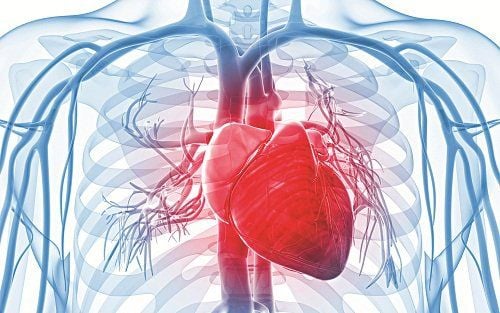
Vitamin B6 được sử để điều trị bệnh tim mạch và đột quỵ
3. How to use vitamin B6 (pyridoxine)
Vitamin B6 supplementation depends on the specific health condition:For a condition where the body produces abnormal red blood cells that accumulate iron (sideroblastic anemia): Initially, 200-600 mg of vitamin B6 used. The dose is reduced to 30-50 mg daily after an adequate response. For vitamin B6 deficiency: In most adults, the usual dose is 2.5-25 mg daily for three weeks then reduced to 1.5-2.5 mg daily. In women taking oral contraceptives, the dose is 25-30 mg per day. For high levels of homocysteine in the blood (hyperhomocysteine): To reduce high homocysteine levels in the blood after a meal, use 50-200 mg of vitamin B6. Additionally, 100 mg of vitamin B6 has been taken in combination with 0.5 mg of folic acid. For an eye disease that leads to vision loss in older adults (age-related macular degeneration): 50 mg of vitamin B6 as pyridoxine daily in combination with 1000 mcg of vitamin B12 (cyanocobalamin) and 2500 mcg folic acid for about 7 years. For hardening of the arteries (atherosclerosis): use a specific supplement (Kyolic, Total Heart Health, Formula 108, Wakunga) containing 250mg aged garlic extract, 100 mcg vitamin B12, 300 mcg folic acid, 12.5 mg of vitamin B6, and 100 mg of L-arginine daily for 12 months. For kidney stones: 25-500 mg of vitamin B6 daily. For morning sickness: 10-25 mg of vitamin B6 taken three or four times daily. In people who do not respond to vitamin B6 alone, a combination product containing vitamin B6 and the drug doxylamine (Diclectin, Duchesnay Inc.) is used three or four times daily. Alternatively, another product containing 75 mg of vitamin B6, 12 mcg of vitamin B12, 1 mg of folic acid, and 200 mg of calcium (PremesisRx, KV Pharmaceuticals) can be used daily. For symptoms of premenstrual syndrome (PMS): 50-100 mg of vitamin B6 daily, or in combination with 200mg of magnesium. For the treatment of dyskinesia often caused by antipsychotics (tardive dyskinesia): use of 100 mg of vitamin B6 per day has been increased weekly to 400 mg per day, given in two divided doses. For children, the dosage of vitamin B6 supplement is as follows: Children 1-3 years old supplement 30mg; Children 4-8 years old, supplement 40mg; Children 9-13 years old supplement 60mg, infants 0-6 months take 0.1mg; Infants 7-12 months use 0.3 mg.

Đối với ốm nghén, sử dụng 10-25 mg vitamin B6 uống ba hoặc bốn lần mỗi ngày
4. Side effects when using vitamin B6
A healthy and varied diet will provide most people with enough vitamin B6. However, for people with kidney disease, malabsorption syndromes, and certain other conditions, vitamin B6 supplementation is often necessary.Vitamin B6 supplements are also effective to treat an inherited form of anemia and to prevent an adverse reaction to the antibiotic cycloserine, a prescription medicine used to treat tuberculosis.
When used as a supplement in appropriate doses, vitamin B6 is likely safe. Getting a lot of vitamin B6 through food has not been shown to cause harm.
However, too much vitamin B6 can also cause:
Lack of muscle control or c-coordination (ataxia) Painful skin lesions Digestive symptoms, such as heartburn and nausea Sensitivity to light sun (photosensitivity) Numbness Decreased ability to perceive pain or extreme temperatures Vitamin B6 may interact with certain medications such as:
Altretamine (Hexalen). Taking vitamin B6 with this chemotherapy drug might decrease its effectiveness, especially when combined with the chemotherapy drug cisplatin. Barbiturates. Taking vitamin B6 with a medicine that acts as a central nervous system depressant (barbiturate) might decrease the duration and intensity of the medication. Anticonvulsants. Taking vitamin B6 with fosphenytoin (Ceritherx) or phenytoin (Dilantin, Phenytek) might decrease the duration and strength of the medication. Levodopa. Avoid taking vitamin B-6 with this medicine used to treat Parkinson's disease. Vitamin B6 may decrease the effectiveness of the medicine.
Please dial HOTLINE for more information or register for an appointment HERE. Download MyVinmec app to make appointments faster and to manage your bookings easily.
References: Mayoclinic.org; Webmd.com



